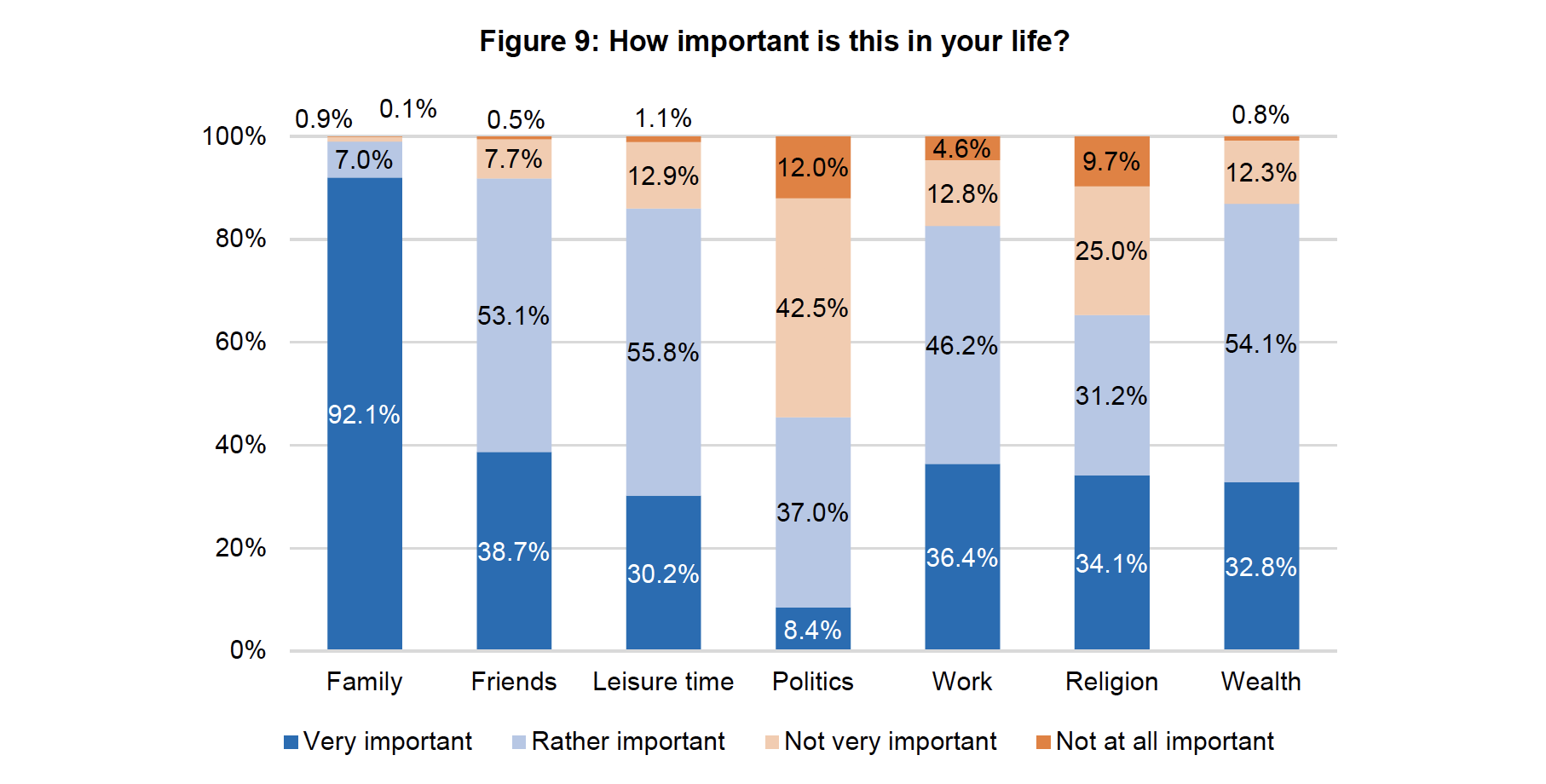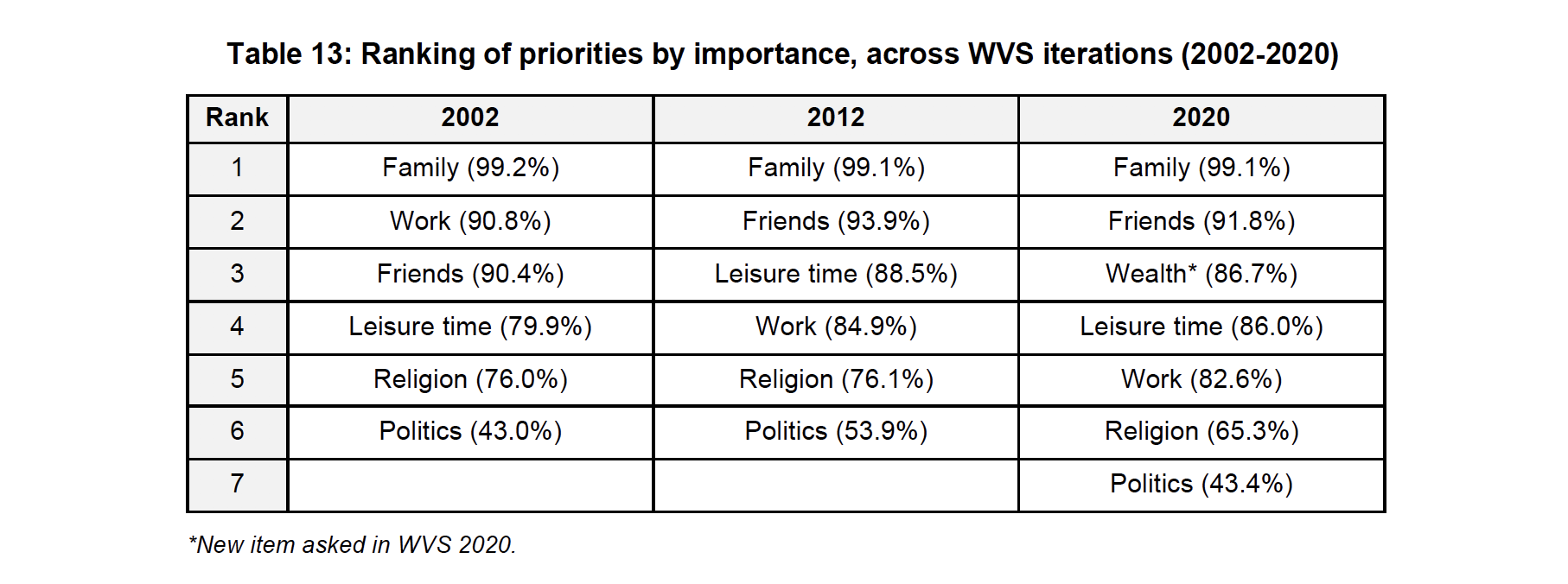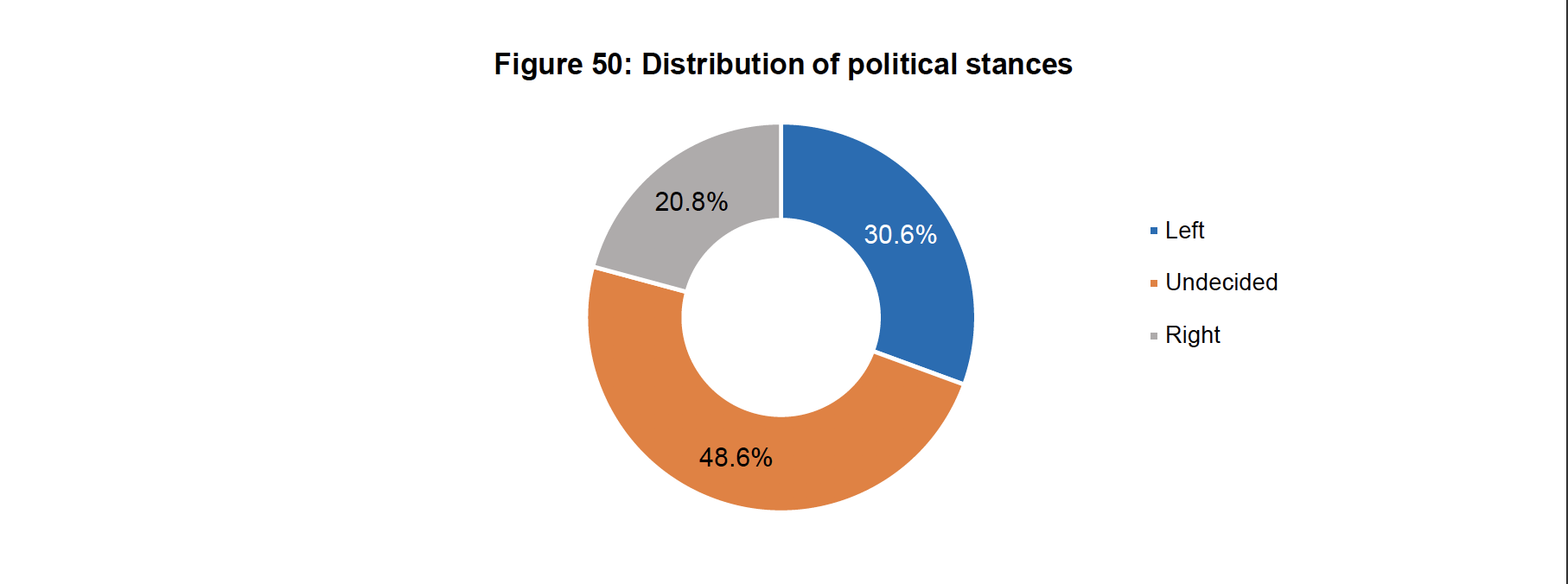The World Values Survey (WVS) is the largest non-commercial, cross-national, and time-series survey of public attitudes and values globally. Currently in its seventh iteration, 2020 marks the third time Singapore has participated in the study, previously participating in 2000 and 2012. The Singapore component was carried out by the Institute of Policy Studies' (IPS) Social Lab under Lee Kuan Yew School of Public Policy (LKYSPP), NUS.
Titled Our Singaporean Values, the survey is the first of a three-part series of salient findings by a group of researchers consisting of Dr Mathew Mathews, Dr Teo Kay Key, Mr Melvin Tay and Ms Alicia Wang at IPS and Associate Professor Alfred Wu, Assistant Professors Tan Poh Lin, Joelle Fong, Mehmet Akif Demircioglu, and Xi Lu at LKYSPP. The findings analysed the data of 2,012 Singaporean respondents and made comparisons from previous iterations of the WVS to show the shifting and sustaining responses across different times and spaces. The survey sample was weighted to mirror the age, gender, and race demographics of the adult resident population in Singapore.
Importance of family remains high
The survey found that family still tops the ranking of importance in three separate surveys (2002, 2012, and 2020). 99% of respondents said that family is their top priority. This supports the notion that most Asian families still rely on each other to get by, as opposed to Western societies where individualism leads the way.
 Source: Our Singaporean Values: Key Findings from the World Values Survey
Source: Our Singaporean Values: Key Findings from the World Values Survey
Moreover, a sense of approval from one's parents is still considered crucial for most respondents. This sentiment was shown by 86.2% of respondents who said that one of their main goals in life was to make their parents proud. When divided into different religions, three religions indicated family as very important; Muslims (97.1%), Catholics (96.0%), and Hindus (95.5%). Speaking to The Straits Times, Dr. Matthews opined that having children is still crucial in Singapore: "What's very clear is that norms of having children and family here are still very strong," he said.
The declining priority of work
Work is a necessity in today's world, especially in a megalopolitan city like Singapore, where the cost of living is not cheap. But only 82.6% of respondents deemed work as a priority. As a result, work dropped to fifth place in the rankings, a stark contrast from 2000, where 90.8% of respondents deemed work a priority, ranking second. The findings were also different from neighbouring countries such as Thailand, Malaysia, and Taiwan, which still consider work a second priority after one's family.
 Source: Our Singaporean Values: Key Findings from the World Values Survey
Source: Our Singaporean Values: Key Findings from the World Values Survey
In place of work, the 2020 results showed that respondents ranked friends (91.8%), wealth (86.7%), and leisure (86%), as more important values respectively. Friends and leisure time often come in tandem with the social and economic levels of respondents. The higher one's economic power, the more likely friends and leisure time will be a priority since they have more time and money to spend and socialise. These two categories were also deemed very important to respondents who were young and single. "People want a balanced way of dealing with work, family, friends and leisure. They want to ensure that they have better work-life harmony," said Dr. Matthews.
Meanwhile, wealth was considered less of a priority for older respondents, with 20% of respondents aged above 65 indicating wealth as unimportant. In contrast, less than 13% of respondents in the 13-65 age bracket indicated that wealth is not important at all.
"Although wealth remains important to a great majority of Singaporeans, for the oldest group, they are at a stage of life when more of them are concerned about other aspects such as having leisure time and spending time with family and friends," remarked Dr. Matthews.
Additionally, respondents with higher socioeconomic backgrounds said that wealth was less of a concern. This was supported by 20% of respondents living in private homes that categorised wealth as an essential priority, whereas 40% who lived in one to three rooms HDB flats felt the same.
Lack of political stance
Politics was placed at the bottom of the list, with almost half (48.6%) of respondents indicating they did not have a political stance. This could be due Singaporeans not understanding what "left-wing" and "right-wing" politics mean, or a desire to adopt a centrist stance rather than choosing sides, explained Dr. Teo to Today Online.
 Source: Our Singaporean Values: Key Findings from the World Values Survey
Source: Our Singaporean Values: Key Findings from the World Values Survey
Respondents who identified as liberal (left-wing) stand at 30.6%, whereas those identified as conservative (right-wing) stand at 20.8%, with most respondents still undecided. However, there was an overwhelming consensus on the importance of democracy and honest elections.
Other political and social questions asked in the survey include the importance of protecting the environment.
Three in five respondents agreed that protecting the environment should be made a priority, even if it means a slower economy and some job loss. Such an approach is often known as a liberal one. Not surprisingly, most of the respondents who agreed on this approach were younger, more educated, and had higher wealth.
Those who earned less often prioritised their jobs and the economy over protecting the environment. "It's likely that (the lower-income) were more concerned about their own livelihoods and, therefore, chose to protect jobs and the economy," said Dr. Matthews to The Straits Times.
When it came to social issues, especially those about sex such as homosexuality, abortion, casual sex, and prostitution, Singaporeans are still mostly conservative.
The survey found that approximately 60% of respondents said such acts were never or seldom justifiable. On the other hand, the majority of respondents felt it was sometimes, mostly, or always justifiable to carry out the death penalty (63.5%), euthanasia (50.6%), premarital sex (54.1%), and divorce (57.1%).
Dr. Matthews said that Singaporeans have a more liberal stance on issues like the environment due to the direct impact that can be felt. In contrast, a more conservative stance is taken because most Singaporeans remain religious.
"For the environment, effects of global warming can be felt. Furthermore, being a low-lying island, Singapore is likely to feel the impacts of environmental change faster and in a more direct way. On the other hand, 65% of the respondents view religion as important to their life, meaning that issues of morality are often guided by religious beliefs that mostly remain conservative."
As time goes on, values, social attitudes, and priorities will often evolve in society. But for now one thing remains constant in Asian communities: prioritising one's family above anything else.